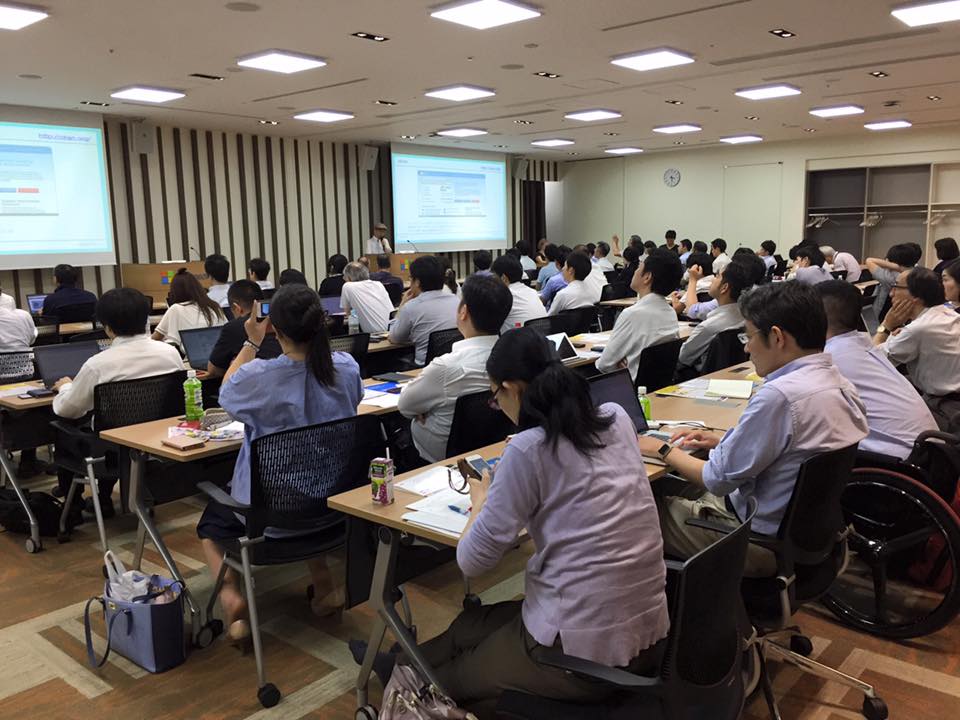
ANNAI first began providing Open Data support services five years ago. At the time, open data was primarily made up of community based volunteer activities, however ow the years, we have been able to become a source of expertise, providing consultation and support to various corporations.
Using momentum provided by the Japanese Government sponsored Open Data Initiative, ANNAI held the Open Data Platform and Civil Collaboration Conference. ANNAI would like to give a big thank you for everyone involved in making this conference a reality.
Roughly, 100 individuals were in attendance, including central and regional government officials, civic technology leaders, solution providers, and the general press.
The overall reaction and level of interest shown by the participants was very encouraging, and speaks well to the future of Open Data in Japan. It was good to see opening communication channels between all parties involved in the event.
For those whonot join us on the day, the snippets below give an idea of how the day went.
Kenji Hiramoto(CIO for the Cabinet Office of the House of Representatives and Ministry of Economy, Trade and Industry)
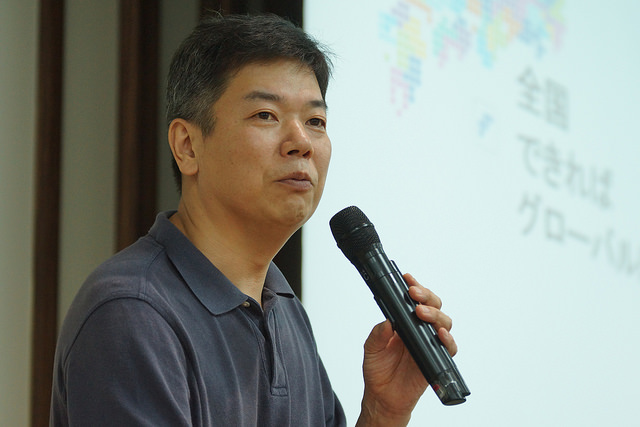
It was pointed out that ever since the Cabinet passed the bill for the “Open Data Initiative" many concerns needed to be addressed. Knowing what the various specific needs for each regional organization and dealing with those specifications in an efficient and precise manner was very important.
“The various different formats used for all of the current data makes them hard to utilize.” and “With the current data that we have access to, I don’t feel motivated to make a useful application” were amongst some of the feedbacks given by the Solutions Developers. Mr. Hiramoto has responded by assuring that efforts will be made to improve the situation regarding the concerns raised today.
On the other hand, the regional government side were noted saying that there are various areas extra care should be taken or avoided all together and that they hope that the Platform side could provide the most optimal solution for implementation.
The new trend of using Open Data has just only begun and services and business born from Civic Technologies have yet to be able to show outstanding results, but he has expressed that he expects that long term benefits should become more visible as time goes by.
Currently people involved in the Open Data project are Civic Technology, regional government and local citizens. However with the momentum this project is carrying it is highly likely there will soon be a need to expand as well as dividing roles to include Data Distributors (Platform developers).
The government would like for this project to go on beyond a simple Open Data platform and expand into an easily accessible Public service platform. The government hopes to use the digitization process to help speed up the process of handling various procedures that have traditionally been carried out with pen and paper.
Keisuke Inoue (Kyoto City Office for Information Technology Application, General Planning Bureau, Statistical Analysis Representative)
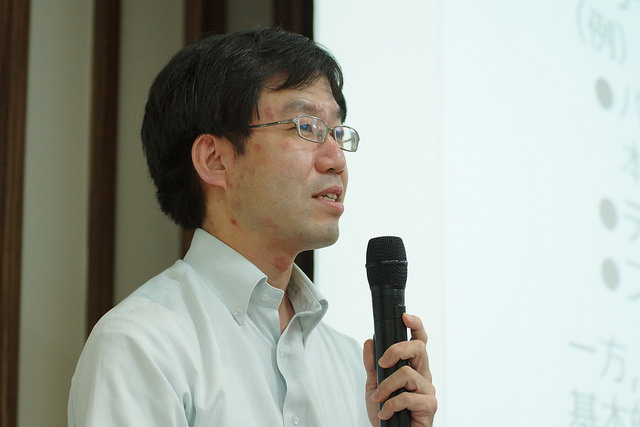
The Kyoto City Open Data project was greenlit around Autumn of last year and with the full support of the city, the KYOTO OPEN DATA site was launched thereafter.
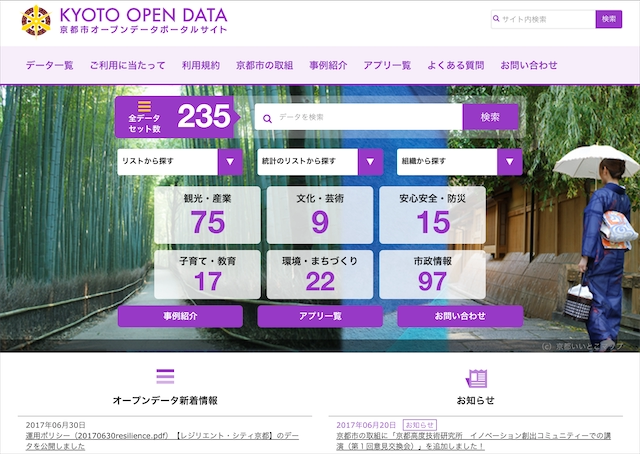
The site itself provides a lot of data. All of which have been provided by each department inside the Kyoto City Municipal Office. Representatives from each department are assigned accounts and all of the data uploaded are done through these representatives.
Feedback from users have been very positive, with many being very impressed by how easy the search function is to use and how the preview function helps enrich the user experience.

The main principal data featured are as follows:
- Tourist information
- Subway timetables
- Information on designated evacuation sites
Popularly researched data are as follows:
- Information on tourist attractions in Kyoto
- List of all authorized traditional Japanese Inns (aka Ryokan)
- Map/Overview of Nijō Castle
- General research data relating to tourism in Kyoto
- Locations of AEB devices.
Few examples of the usage of the data is as follows:
- Ishibumi (Stone monuments) Application: Search for over 1400 ancient stone monuments scattered all over Kyoto and plan out routes to visit them.
- Findfacility: Search for public service facilities such as ward offices or hospitals etc based on your current location or a major train station
- Kyoto University, Faculty of Engineering, Department of Information Science “Data Analysis Final Presentation”.
For more detailed information please follow this link. A participant of the conference was heard saying that “Kyoto city is really advancing several steps ahead of other municipalities in this field.”, to the agreement of many others in attendance.
Satoshi Kino(ANNAI Inc,. Chief Executive Officer)
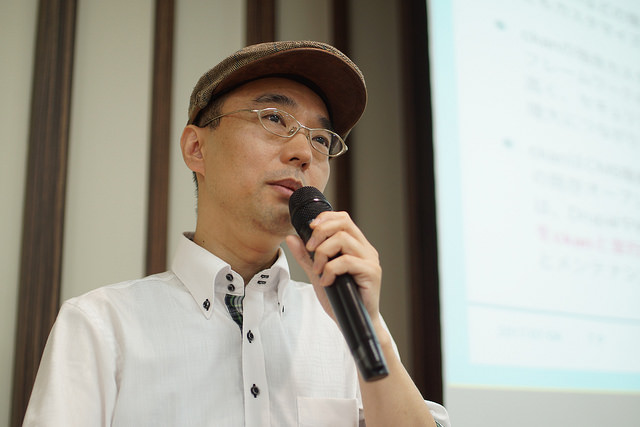
Our CEO Mr. Satoshi’s session involved the following topics:
Current state of data platforms and problems that have arised.
Solution for the KYOTO OPEN DATA project
- What is DKAN?
- What this means for the municipality
- What this means for developers
- What this means for residents and tourists.
Future challenges
To start off, there was a short explanation of the kind of functions that would be desirable for such a system, as well as how the developers may use the data and the API(s) that would allow this to happen.
A commonly used data cataloging engine is ckan. However in able to make it behave and seem like a portal site a separate CMS would needed to be run in parallel to project the illusion of a single entity based system. Costs for developing, managing and maintaining such a system would be needlessly high.
Converting the data that is available on dataportal sites to LOD and making such data be searchable/obtainable via SPARQL servers has become mandatory. However this system does not provide a direct connection between the data available in the data portal leading to having a separate system running in parallel, leading to problems with redundancy etc.
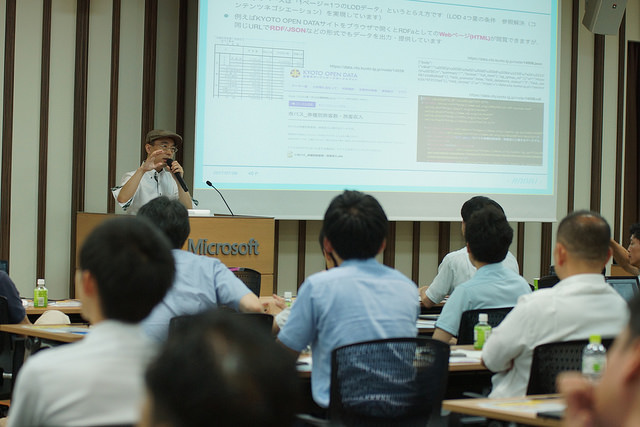
The continuation of the development of KYOTO OPEN DATA was very important for us, thus we have included several functions that were not available in the original DKAN package. It is believed that many participants have not seen anything similar prior to attending the conference.
Having converted all the data to RDF and then later into LOD, we were able to achieve our goal of connecting everything to the outside world as a single entity and were able to release the system publicly as a 5 star Open Data system.
Before bringing his presentation to a close, Mr. Kino also talked about the various challenges that lie ahead as well as how future stakeholders may be involved. Topics that were brought up include “Publishing and making use of the Open Data, development of applications that are able to utilize the data as well as how to further grow the system to be able to help support and become a strong ally to those looking to start a business.
Slides from the session is available blow:
Kenichiro Fukushima(Representative of Code for Kanazawa)
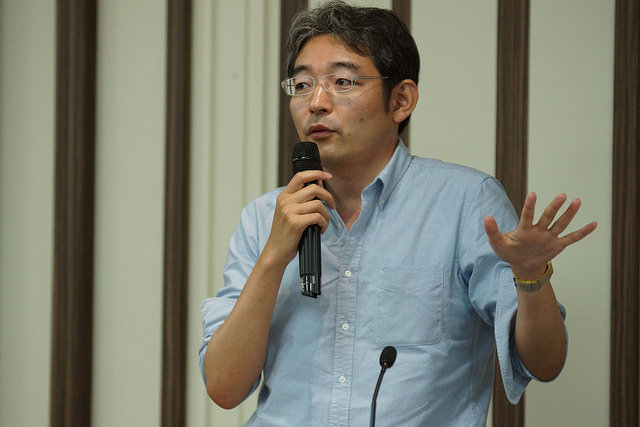
Code for Kanazawa is an NPO that focuses on Civic Technology. Civic Technology is technology that improves government infrastructure by enabling public engagement and developing better ways for citizens to stay connected with their local government.
Modern Civic Technology can be traced all the way back to the 15th century where the first major book printed using mass-produced movable metal type in Europe called the Gutenberg Bible started the Gutenberg revolution and the age of the printed book in the West.
Code for Kanazawa has given birth to various similar organizations all over Japan, but it first started off from learning from the Code for America organization. Similarly to Code for America, the various Code for projects around Japan strive in their neutrality to work towards the best possible solution for Japanese citizens and residents and local businesses. Even as a non-profit organization, revenue is needed to sustain independence and as such future business prospects must always be explored.
The garbage collection information service application called 5374.jp is a prime example of projects by Code for Kanazawa.
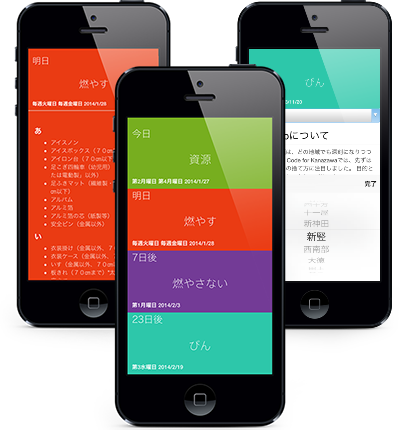
In Japan, depending on the area you are in, garbage collection policies and schedule can be different. Ignoring these rules/policies/schedules can cause many problems and in the past, obtaining certain information leads you to getting in direct contact with your local ward office. However with the use of this application you are able to look up all information regarding the local policies and rules regarding the area of interest. This can be especially useful for people who have recently moved to a new ward or city.
Another great example that is rapidly gaining popularity is “http://noto.not-alone.jp/”: a support website that was made to help mothers who are raising children in the Noto area of Kanazawa.
One major misunderstanding about Civic Technology is that it is a community of developers, however more than 80% participants are non-engineers with varying backgrounds. Technology is only a small part of what makes up Civic Technology, the rest is made up of finding the problem and coming up with an ideal solution to said problem. As such, anyone who has a good understanding of our philosophy is encouraged to participate.
It is crucial that when a person comes across a problem does not simply seek help from a certain developer. What makes the project capable of success is for people to work together to form the best solution for everyone.
Our goal is to have the organization be able to support the community, through revenue from various in house projects and donations.
Jiro Fukuda(Yokohama City General Affairs Office, Information Supervision Department Manager)
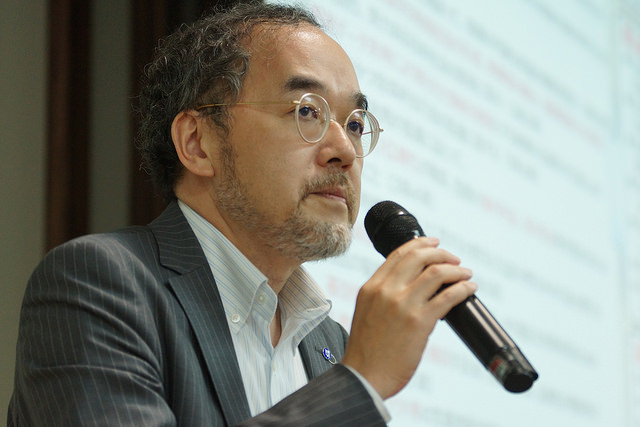
It seems that the city of Yokohama has been focusing its efforts on urban development through infrastructure solutions. However, there have been talks that the city will now be setting its sights on the vision of a “Futuristic Environmental City”. One of the problems that the city faces is that income tax is considerably low, more efforts will be put into attracting more companies and organizations to invest in the city.
In terms of implementing technology to improve urban management, efforts are being made towards “Open Innovation” and the Open Data approach is one of the many solutions they are working with.
Earlier this year in March, the “Yokohama City Municipal Public Data Promotion Regulation” as well as the headquarters for the Open Data Promotion Office.
As a city we have already made efforts to the implementation of Open Data and there were high hopes for new and innovative business to be born from this. However, the data provided from the administrative side was not what businesses needed, and such results were not as expected. In particular the following points:
Municipal data is outdated: Real time data and predictive data is much more desired than past data.
Text based data: Rather than phrase based text, measurements and positioning data is desirable.
Overall results: User based data, regardless of anonymity.
Analysing and solving these problems would hopefully encourage the public to venture into new businesses.
With that in mind we have big plans to provide systems that can supporting new businesses by utilizing IoT and data science concepts. In order for this to happen, we must be capable of providing high quality data aggregation as well as systems that are capable of a certain degree of predictive functionality.
To make this future possible, there are plans to implement support communities for all related parties, anyone who is interested is encouraged to get in touch.
Social gathering/After Party
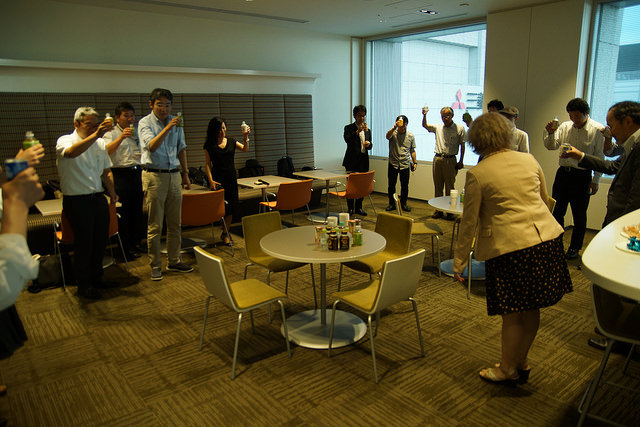
After the conference there was an after party where those who had time to stick around were invited to freely socialize and deepen relations. It was great to see that everyone involved were able freely discuss the future prospects of the Open data project, regardless of affiliations or ranks. As the organizers for this event, we felt very relieved and encouraged by the outcome of this gathering.
In the future we would like to hold more conferences like these, and uses these gatherings to work together with all related parties to make. On behalf of us here at ANNAI, thank you very much for taking your time for this conference, and we hope to continue to work with everyone.
Special Thanks To :
Microsoft Corporation Japan (Venue provider)
Kyoto City(Support)
The Institute of Open and Big Data Utilization and Regional Development (Support)
Code for Kanazawa (Cooperation)
Code for Kyoto (Cooperation)
Yokohama Community Design Lab NPO(Cooperation)

